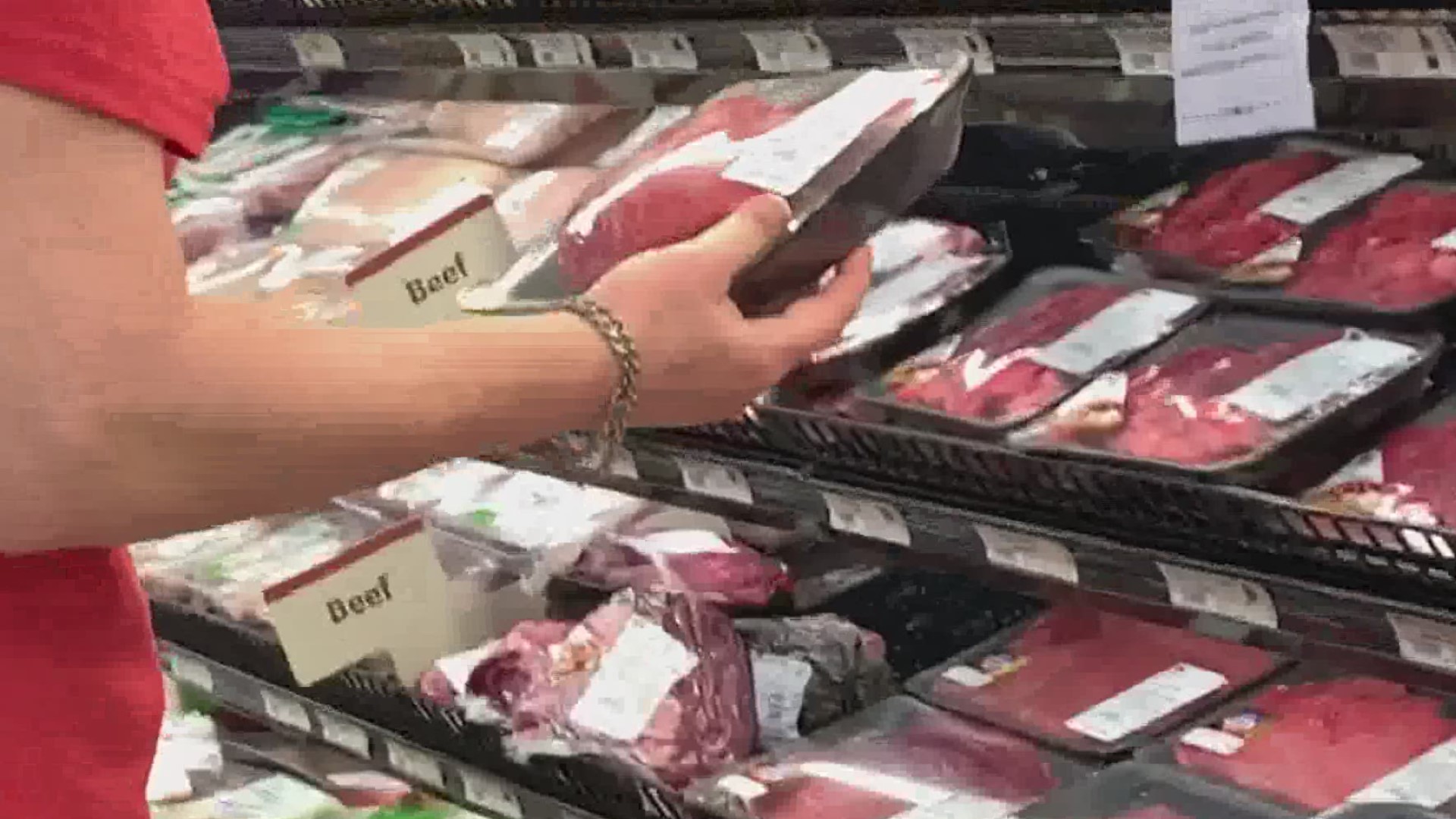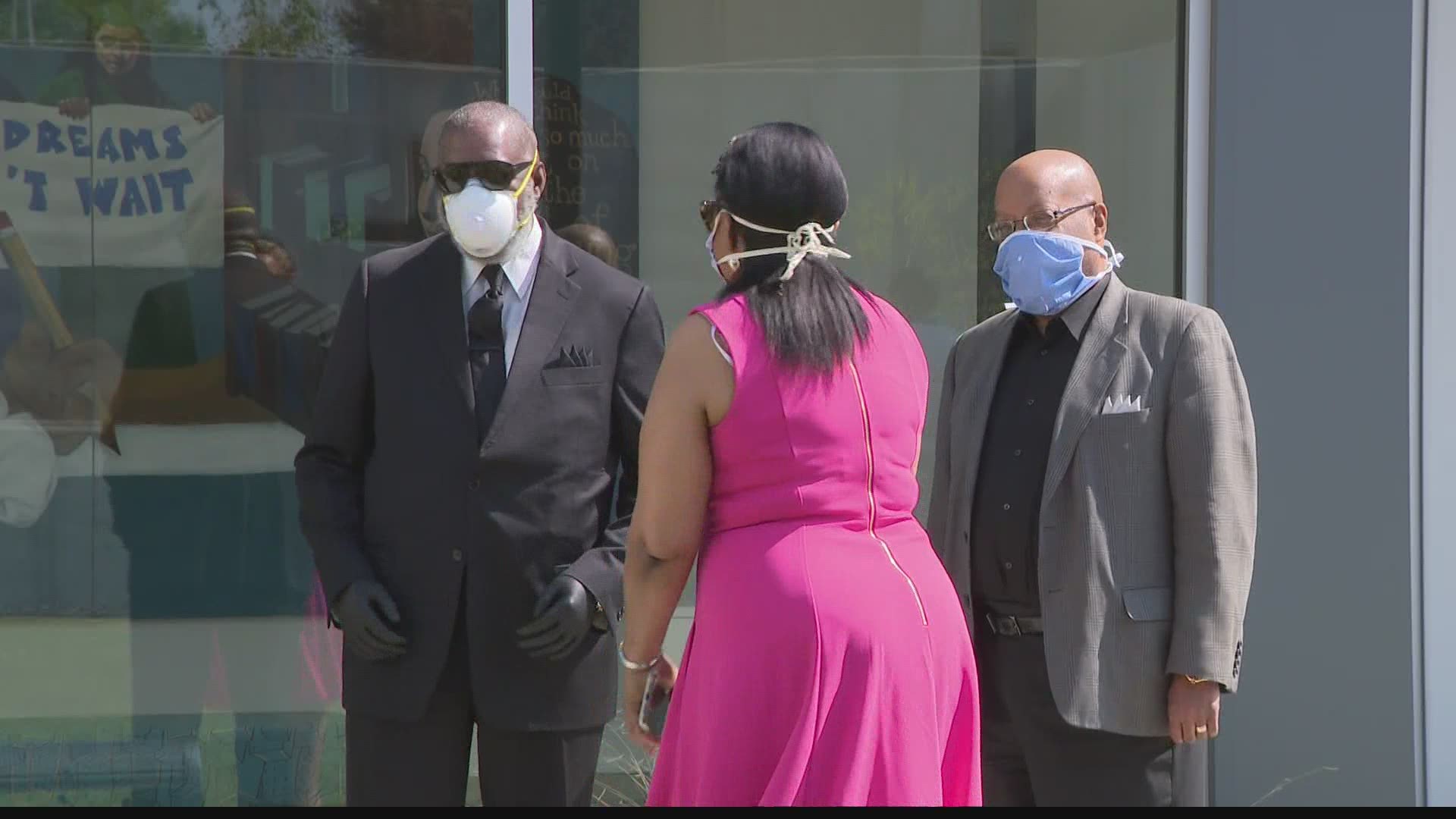ST. LOUIS — President Donald Trump ordered meat processing plants to remain open Tuesday, using the Defense Production Act to classify meat production as part of the critical infrastructure of the country.
The action comes after more than a dozen plants closed because of coronavirus outbreaks, creating a bottleneck in the supply chain and concerns about shortages.
"We are suffering not getting our meat, and some of the chickens or pigs are killed without any purpose,” said Panos Kouvelis, director of the Boeing Center for Supply Chain Innovation at Washington University.
Kouvelis said President Trump's order comes with trade-offs: the meat supply versus the health of the workers inside the plants.
"It's the risk of not having enough food or having some people being exposed to COVID-19, and I don't think there's any solution that's going to cover both sides,” he said. “But hopefully if we're really cautious, we can maintain the supply chain while at the same time protecting people."
He said the most “pragmatic” solution would be to lower capacity levels at the plants to require fewer workers inside at once and provide them with protective measures.
Kouvelis said shoppers can expect some shortages — mostly of variety — but said the Midwest could fare better than other regions because of its proximity to processing plants.
"I would say we're not going to go hungry, let's put it that way,” he said.
At Mannino’s Market in Cottleville, owner Carmen Mannino said customers are buying more meat than they have in the 50 years he’s owned the store.
"People are panicking right now,” he said. "It's good for business, but sometimes it's just overwhelming."
Mannino said he started to have a problem with a shortage of pork last weekend.
"We can't get the pork that we need," he said.
While his store is busy now, he worries what would happen if more plants were forced to close, leaving him without meat to sell.
"If I had to shut down, I got employees here. They're like family. I don't know what they would do,” he said.
Schnucks and Dierbergs both said they aren't experiencing meat shortages but added that could change.
“The available meat supply is a fluid situation that changes daily and one that we are continuously monitoring,” a Schnucks spokesman said.
“This is an unprecedented situation and evolves each day, so it's difficult to predict weeks out,” a Dierbergs spokesman said.


